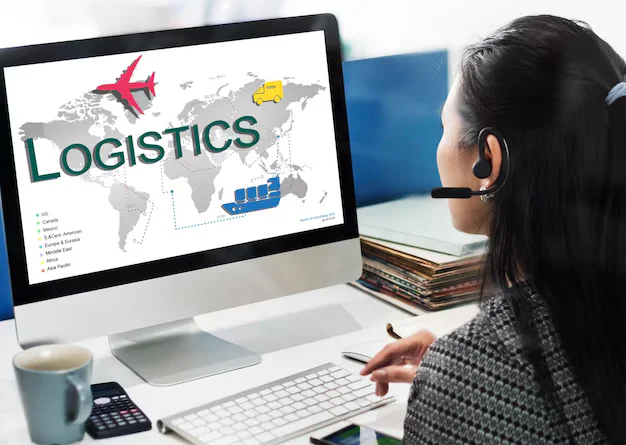In modern supply chains, managing logistics costs effectively has become more critical than ever. As businesses continue to expand and the complexity of logistics operations grows, finding ways to optimise budgets is essential to maintaining profitability. One of the most powerful tools to achieve this is freight audit and payment systems. These solutions streamline processes, eliminate errors and provide valuable insights into freight spending, ultimately contributing to a more efficient and cost-effective logistics operation. This article explores how freight audit and payment systems can help optimise your logistics budget and drive cost savings across the supply chain.
Understanding freight audit and payment
Freight audit and payment involve reviewing, validating and paying freight invoices. This process ensures that charges align with agreed terms and shipping conditions, helping businesses identify discrepancies, overcharges and billing errors. The process often includes verifying shipment weight, freight rates, fuel surcharges and delivery charges. When implemented effectively, freight audit and payment solutions can prevent costly errors and ensure businesses only pay for what they owe.
These systems also automate invoicing and payment workflows, reducing the need for manual intervention and human error. With a central platform to manage all freight billing, businesses can streamline their payment processes and ensure that all invoices are paid accurately and on time.
Identifying and eliminating billing errors
One of the biggest challenges businesses face when managing logistics costs is the frequent occurrence of billing errors. These can include duplicate charges, incorrect rates or miscalculations in fuel surcharges. With a freight audit and payment system, these issues can be identified quickly and resolved, ensuring businesses are not overpaying for services.
The automated auditing capabilities of freight audit and payment solutions help businesses spot discrepancies before they become costly problems. By comparing actual invoices against contracted rates and historical shipping data, these systems can automatically flag errors, saving time and money. Additionally, eliminating billing errors means fewer disputes with carriers and suppliers, reducing administrative costs. As a result, businesses can significantly lower their logistics costs while improving the accuracy of their financial reporting.
Streamlining payment processes
Another way freight audit and payment systems help optimise logistics budgets is by automating the payment process. Manually handling payments can be time-consuming and error-prone, leading to delayed payments, late fees and unnecessary administrative overhead costs. By automating the entire payment cycle—from invoice receipt, to approval, to payment—freight audit and payment solutions can reduce the time spent on manual tasks and ensure that payments are made accurately and on time.
This streamlined process also helps businesses take advantage of early payment discounts and avoid late fees or interest charges. Automated payment workflows free up valuable resources, allowing teams to focus on more strategic initiatives. For example, integrating the freight audit and payment system with retail yard management software can enhance operational efficiency. This integration ensures logistics teams can track shipments in real time, making it easier to manage budgets, optimise resources and pay invoices on time.
Gaining better visibility into freight costs
One of the primary advantages of freight audit and payment systems is the enhanced visibility they provide into freight costs. Businesses gain detailed insights into their spending patterns by collecting data on all freight transactions. This data can track shipping costs across various carriers, routes and service levels, providing a clearer picture of where money is spent.
With better visibility, businesses can make more informed decisions about which carriers offer the best value and identify areas where costs can be reduced. For example, retail yard management software can help optimise dock scheduling and loading processes, reducing waiting times and improving efficiency in the yard. This results in fewer unnecessary expenses and improved budget management across the logistics operation.
Enhancing carrier negotiations
Freight audit and payment systems also play a critical role in improving carrier negotiations. With the insights provided by these systems, businesses can leverage data to negotiate better rates and more favourable terms with their carriers. By accessing accurate historical data on shipping costs, companies can identify inefficiencies in their current transportation agreements and push for more competitive pricing or improved service levels.
With Transporeon, businesses can streamline their carrier relationship management and improve contract negotiations. Transporeon’s platform provides valuable data analytics and reporting features that empower logistics teams to negotiate more innovative, lower-cost contracts. By using this data to evaluate the performance of different carriers, businesses can ensure they are getting the best value for their shipping needs.
Improving forecasting and budgeting
Effective logistics budgeting and forecasting rely on accurate historical data. Freight audit and payment systems provide the foundation for better cost forecasting by offering a comprehensive view of past shipping expenses. By analysing this data, businesses can create more accurate projections for future shipping costs, allowing them to plan budgets more effectively and avoid unexpected expenses.
The Transporeon platform further supports forecasting and budgeting by providing real-time data and advanced reporting capabilities. With up-to-date information about freight spending, logistics teams can adjust their budget forecasts, ensuring they stay on track throughout the year. This capability is handy for businesses with fluctuating shipping volumes or seasonal demands, allowing them to plan for peak periods more efficiently.
Reducing overhead costs in logistics management
Businesses can reduce overhead costs in logistics management by automating and streamlining the freight audit and payment process. With fewer manual tasks, logistics teams can focus on more strategic activities, such as optimising supply chain operations, improving customer service and negotiating better supplier contracts.
Automation also reduces the risk of errors and the need for costly rework, freeing up resources that can be allocated to other business areas. This results in a more efficient logistics operation with lower administrative costs, contributing to overall cost savings in the supply chain.
Long-term cost optimisation
Freight audit and payment systems are not just a short-term solution—they also provide long-term benefits for logistics cost optimisation. Businesses can identify ongoing cost-saving opportunities by consistently tracking freight expenses and analysing performance data. Over time, the insights gained from these systems can be used to continually refine logistics strategies, negotiate better rates with carriers and streamline operations to reduce waste and inefficiency.
The Transporeon platform helps businesses take a long-term approach to cost optimisation by providing continuous, real-time data on freight spending and performance. This data-driven approach enables logistics teams to make proactive decisions that drive cost savings over time, ensuring that the logistics budget remains under control and businesses achieve sustainable financial results.
Conclusion
Freight audits and payment systems are essential for optimising logistics budgets and improving overall supply chain efficiency. By identifying and eliminating billing errors, streamlining payment processes, providing better visibility into freight costs and enhancing carrier negotiations, these systems help businesses control costs and allocate resources more effectively. When combined with retail yard management software and transparency solutions, businesses can further improve their operations and achieve long-term cost savings. Implementing freight audit and payment systems gives companies a competitive edge by reducing operational costs and improving financial forecasting, ultimately leading to a more efficient and cost-effective logistics operation.







